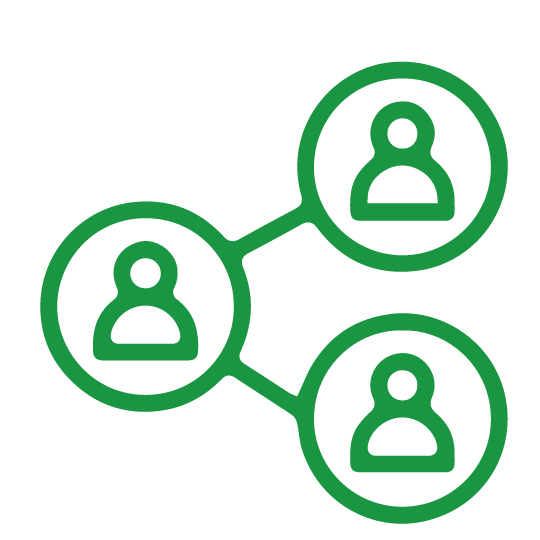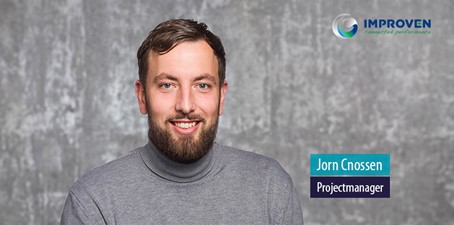Emergence of dynamic organisational structures
The world around us is changing rapidly. In recent decades, there has been a profound shift in the way organisations work. Traditional, linear, organisational structures are increasingly giving way to flexible and dynamic work structures (read: project organisations). Around the year 2028, around 88 million people worldwide will be working in project, - and programme organisations. The value of project-oriented activities will grow from 12 trillion in 2014 to around 18.5 trillion in 2028. This is an increase of 54% respectively! In the Netherlands, this so-called project economy have become increasingly important in recent decades. This leads to a number of questions:
- What does the project economy entail and what does it mean for the future of organisational structures?
- With this relocation, what new roles are being formed within organisations?
- And what benefits does it bring to organisations?
What is the project economy?
The term 'project economy' refers to an increasingly strategic way of working, in which contemporary organisations are adapting its structures and processes to create value through the execution of projects and programmes. By working project-based, organisations can respond more flexibly to change, manage resources more efficiently and achieve specific results that contribute to organisations' strategic objectives. With this, projects and programmes have become an essential part of modern organisations with the aim of remaining competitive and successful in an increasingly complex and dynamic world.
What new roles will be created as a result?
Besides the fact that new roles are being created within organisations to deliver projects and programmes, the general interpretation of job profiles is also changing. With the shift to a project economy, job profiles will include both line and project activities, with project work becoming an essential part of responsibilities. This change is essential to free up both resources and capacity for the growing number of projects and programmes within organisations. If this change does not take place, project and programme results will be compromised.
What new roles are being created in organisations as a project economy matures?
- CPO
The Chief Project Officer (CPO) is the new strategic leader in the 'new' project organisations. The CPO is responsible for the overall management of an organisation's project portfolio and ensures that projects are implemented effectively and efficiently to achieve strategic objectives. The CPO, in collaboration with the PPM, ensures that all projects within the organisation align with the broad organisational objectives. The CPO leads portfolio managers and project managers and has ultimate responsibility for all projects and programmes within the organisation.
- Project manager0
In traditional organisational structures, the project manager is often someone who takes on the role of monitoring the progress, budget and scope of projects. In the project economy, however, the role of the project manager is evolving. The "project manager 2.0" is not only responsible for project execution, but is also the one who effectively directs and manages cross-functional teams. This new role requires different leadership skills, team coordination (both remote and on-site) and the use of various digital tools. Adaptability, communication skills and the ability to make strategic decisions is crucial in this new role.
- Project Portfolio Manager
The Project Portfolio Manager (PPM) is taking on an increasingly crucial role within organisations. The PPM manages the a portfolio of projects and programmes within the organisation. This role focuses on the strategic alignment of projects and programmes and ensures that the right projects are chosen (prioritised) and implemented, based on organisational priorities and available resources. The aim is to maximise the value of the portfolio and support the organisation's strategic objectives. The PPM works closely with the CPO in this regard. The collaboration between the PPM and the CPO focuses on aligning the project portfolio with the organisation's strategic goals. The CPO provides leadership and support to the PPM in prioritising projects and optimising resources, while the PPM ensures the execution and reporting of the project portfolio.
What is the impact of the project economy on organisations?
The impact of the project economy on organisations is profound. It is changing the way traditional organisations are set up not only with new roles within the organisation, but also how organisations adapt to change and achieve strategic organisational goals.
- Flexibility and adaptability
In the project economy, organisations need to be able to adapt faster to changes in the market or technology. Projects enable organisations to quickly develop and implement new ideas, products or services. This allows them to better respond to external changes such as customer needs, new technologies or economic shifts. Project teams are assembled based on the specific needs of the project, meaning the right expertise can be deployed at the right time.
- Strategic focus
Organisations are increasingly focusing on achieving strategic objectives through projects and programmes. Each project and programme has clear, measurable objectives that contribute to the organisation's long-term strategy. This ensures that organisations work in a more goal-oriented way and better align projects with the organisational strategy. Project-based working creates a structure that ensures a shared focus on achieving specific objectives within a given time and with the right resources.
- More efficient use of resources and capacity
In times when resources and capacity are scarce, it is important to use them efficiently and effectively. Project-based working improves the resource- and capacity planning by allocating resources in a targeted manner to the projects to be prioritised, thus making efficient use of them. It enables projects to be prioritised based on urgency and value, capacities to be accurately planned and resources to be flexibly reallocated when circumstances change. This results in better visibility, risk management and optimal utilisation of available capacity. Again, freeing up time for project-based work in employees' job profiles is an essential for projects and programmes to succeed.
The future is projects!
The project economy is becoming an increasingly important way of working, enabling organisations to operate more flexibly, innovatively and efficiently in a dynamic and rapidly changing world. By freeing up more resources and capacity for projects and programmes, and shifting the focus to project-based working, organisations can achieve their strategic goals more effectively and respond faster to changes in the market or within the organisation.
The emergence of roles such as the Chief Project Officer (CPO), the Project Manager 2.0, and the Project Portfolio Manager underscores the importance of strategic project, - programme, - and portfolio management in today's organisations.
The project economy offers organisations not only the opportunity to innovate faster, but also to contribute more successfully to strategic organisational goals and the implementation of change.
The shift to the project economy requires job profiles to include both line and project activities, to free up sufficient resources and capacity for the growing number of project and programmes.
The project economy not only offers the key to success in a dynamic world, but also provides the basis for a future in which organisations can grow and change faster, more flexibly and strategically!
Jorn Cnossen, consultant and member of Department of Projects and Change, own focus on project management and portfolio management elements.





















